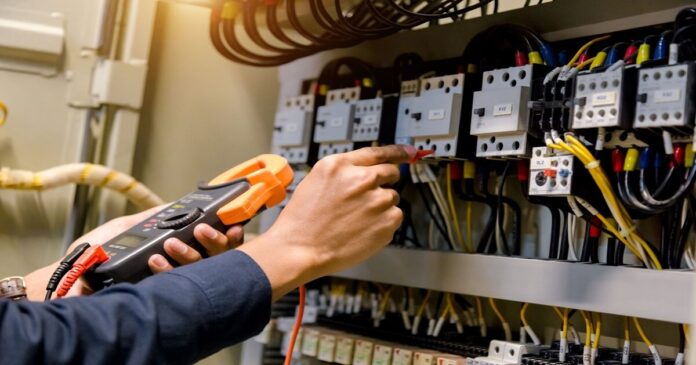Electrical certificate, in the modern world, where electricity powers our daily lives, ensuring the safety and compliance of electrical installations is of paramount importance. An electrical certificate is a document that verifies the electrical safety of a property or facility. In this comprehensive guide, we will delve into the significance of electrical certificate, what requires one, and the process of obtaining it.
Importance of Electrical Certificates
Electrical certificates play a crucial role in guaranteeing the safety of individuals and properties. They serve as evidence that electrical installations have been inspected, tested, and comply with the relevant regulations and standards. Whether you are a homeowner, business owner, or industrial manager, understanding the importance of electrical certificates is essential for the well-being of all occupants and the longevity of the electrical infrastructure.
What Requires an Electrical Certificate
Electrical certificates are required for various types of properties, ranging from residential homes to industrial facilities.
Residential Properties
In residential properties, an electrical certificate is necessary for ensuring the safety of the inhabitants. This includes single-family homes, apartments, and condominiums. When buying or selling a property, a valid electrical certificate is often required as part of the legal process. It provides assurance to both buyers and sellers that the electrical systems are in compliance with safety standards.
Commercial Establishments
Commercial buildings, such as offices, retail stores, and restaurants, also require electrical certificates. These certificates are essential for the safety of employees, customers, and the protection of valuable assets. Compliance with electrical regulations is critical in preventing electrical hazards and potential disruptions to business operations.
Industrial Facilities
Industrial facilities, including factories and manufacturing plants, have complex electrical systems that must adhere to stringent safety standards. Obtaining an electrical certificate for industrial establishments is not only a legal requirement but also a proactive measure to prevent accidents, downtime, and potential financial losses.
How to Obtain an Electrical Certificate
Obtaining an electrical certificate involves a series of steps to ensure that electrical installations meet safety standards.
Hiring a Qualified Electrician
The first step is to hire a qualified and registered electrician. A certified electrician has the expertise to assess, repair, and install electrical systems. It is crucial to choose an electrician with the necessary qualifications and experience to carry out the inspection and testing.
Inspection and Testing
The electrician will conduct a thorough inspection of the electrical installations. This includes checking wiring, circuits, outlets, and other components. Testing will be performed to assess the functionality and safety of the electrical system. Any issues or non-compliance with regulations will be identified during this phase.
Certification Process
Once the inspection and testing are complete, the electrician will issue an electrical certificate if the property meets the required standards. This certificate serves as proof that the electrical installations are safe and comply with regulations. It is essential to keep a copy of the certificate for future reference, especially when selling or renting the property.
Frequently Asked Questions
Q1: How often should electrical installations be inspected?
A1: The frequency of inspections depends on the type of property. Residential properties typically require inspection every ten years, while commercial and industrial properties may need more frequent inspections.
Q2: Can I inspect the electrical system myself?
A2: It is not recommended for individuals without electrical expertise to inspect their own electrical systems. Hiring a qualified electrician ensures a thorough and accurate assessment.
Q3: What happens if my property fails the inspection?
A3: If the property fails the inspection, the electrician will provide a detailed report outlining the issues. Repairs and improvements will be necessary to bring the electrical system up to code before a certificate can be issued.
Q4: Is an electrical certificate transferable to a new owner?
A4: In many cases, an electrical certificate is transferable to a new owner, provided it is still within its validity period. However, local regulations may vary, so it is essential to check with the relevant authorities.
Q5: Are there specific regulations for electrical certificates in different regions?
A5: Yes, electrical regulations may vary by region. It is crucial to be aware of local requirements and work with an electrician familiar with the specific regulations in your area.
Benefits of Having an Electrical Certificate
The benefits of having a valid electrical certificate extend beyond legal compliance. Some key advantages include:
Enhanced Safety: A certified electrical system ensures the safety of occupants and reduces the risk of electrical hazards.
Legal Compliance: Meeting regulatory requirements prevents legal issues and ensures a smooth property transaction process.
Insurance Coverage: Some insurance providers may require a valid electrical certificate for coverage, safeguarding against potential liabilities.
Peace of Mind: Knowing that your electrical system is in compliance provides peace of mind for homeowners, businesses, and industrial managers.
Conclusion
Understanding what requires an electrical certificate is vital for ensuring the safety and compliance of electrical installations. Whether you are a homeowner, business owner, or industrial manager, obtaining and maintaining a valid electrical certificate is a responsibility that should not be overlooked. By following the proper procedures, hiring qualified professionals, and staying informed about regulations, you contribute to the well-being of occupants and the longevity of electrical infrastructure. Stay safe, stay compliant, and enjoy the benefits of a secure electrical system.


